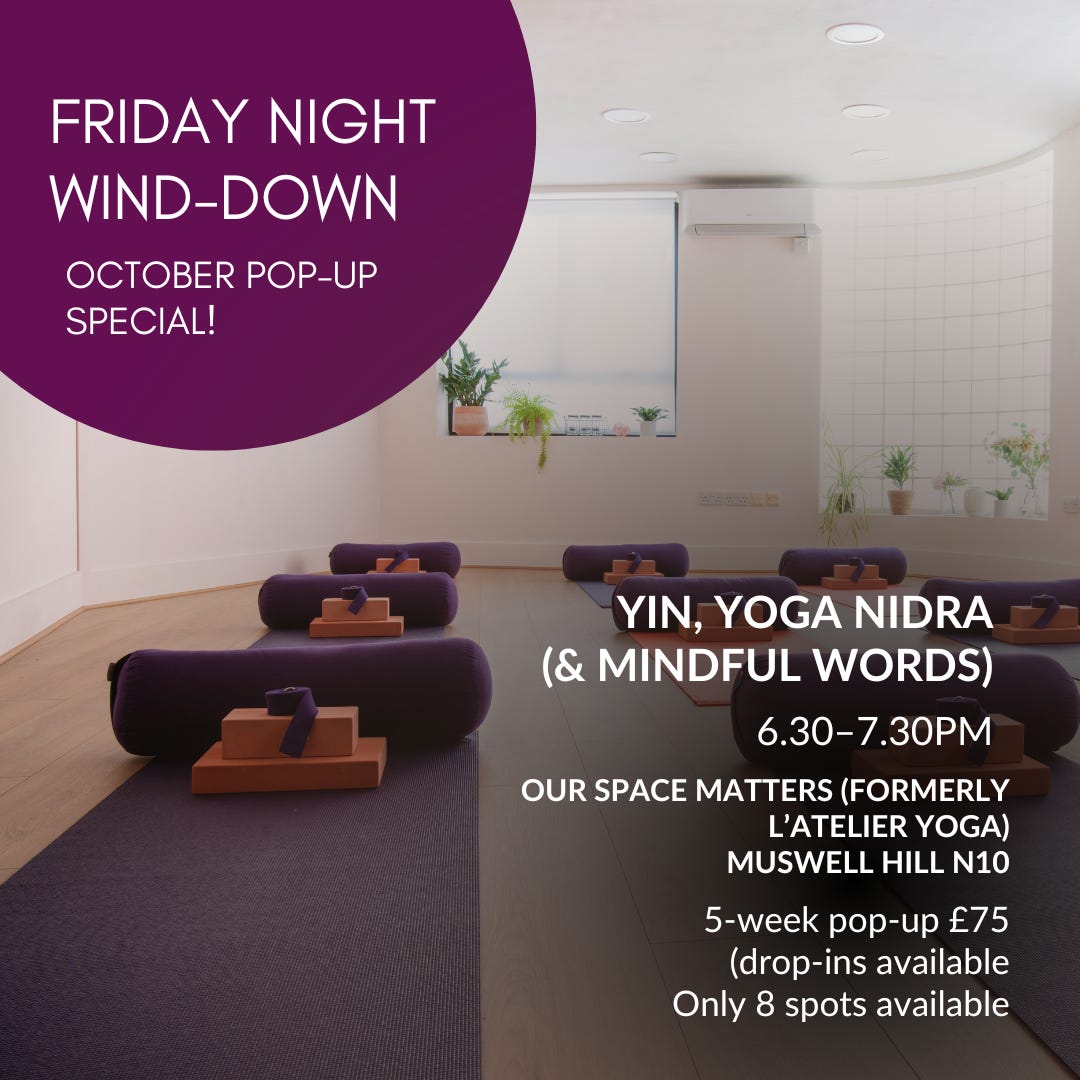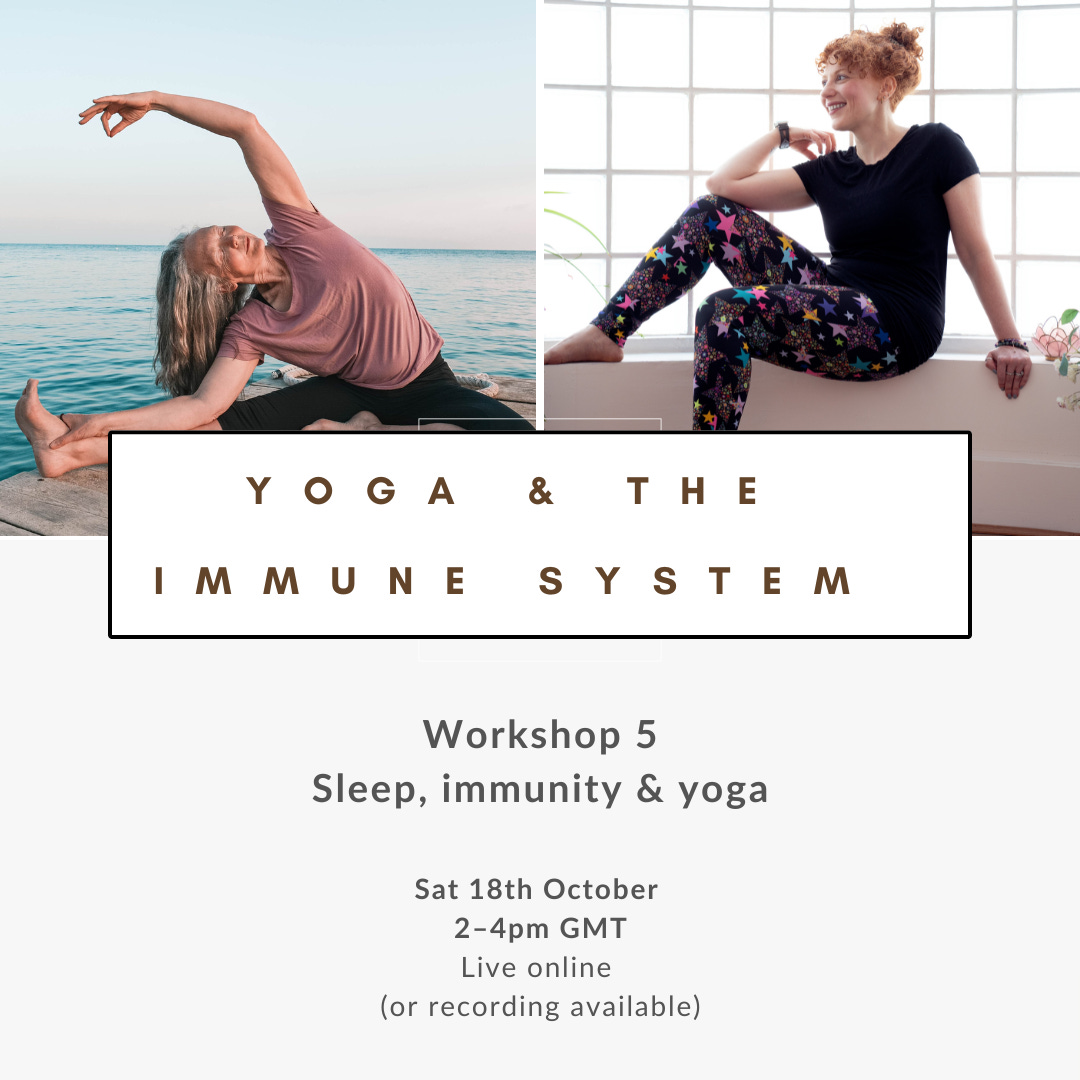Why you should think about doing less to improve your mental health
And how we all are guilty of suggesting more
This paid subscriber-only post is free because I think everyone needs to hear it!
We’ve all been there – a friend/colleague/random person we met on the bus/yoga student tells us that they are feeling stressed, overwhelmed, anxious. We listen, trying desperately hard to keep quiet and let them talk (fighting the urge to share how stressed we also are about all the things we have to do).
And then we suggest:
Have you tried meditating?
Have you tried yoga?
Have you tried speaking to someone, a therapist perhaps?
Maybe you need to do more exercise? It’s meant to help with mental health
Have you thought about a relaxing hobby you could try? I heard knitting is relaxing (it is, but also sometimes it isn’t, ask any knitter who has made a mistake in a lace pattern without using a lifeline and has to fight with the need for perfection and ripping back many many rows to fix it vs accepting it as it is. it’s fucking strussful).
I could keep going, but you get the idea.
Our tendency is to suggest to others that they do more to manage their stress and overwhelm.
While I don’t think any of us challenges this and needs evidence to back up what I just said, there is actually a fascinating study that confirms this.
We are more likely to suggest adding something new to one’s life to tackle a mental health challenge than to suggest that they do less – probably because we think adding is more effective (which is what the study indicates too). The authors suggest that another reason is that an addition is a tangible solution we can offer to someone, whereas doing less is, well, less tangible.
This is also more likely to happen when we advise strangers than friends, probably because the type of advice I listed above is kind of generic (even a GP recommended yoga to me once to help with my anxiety). It’s the type of advice you see in every wellbeing article or article about mental health, and has become common wisdom. When we advise friends, we know more about their lives and are more able to tailor our advice to them.
We therefore possess a reliable tendency to give more additive than subtractive advice for mental health problems. This bias has the potential to create a social context in which we are advising one another to always do more (from paper by Barry & Adelina)
Apparently, ChatGPT and other similar models are exactly the same. I tested this myself asking specifically about stress and overwhelm, and both ChatGPT and Gemini suggested:
Meditation
Journalling
Exercise
Breathing exercises
And new hobbies
Among other things. (probably because they use the information they find online, where other humans like us are advising others to do more to tackle their mental health concerns).
As a side note, I should say that the nature of the advice did somewhat depend on the ‘harm’ (ie not everything was about doing more to feel less stressed). For example, if the harm was something like gambling, participants were more likely to recommend a ‘subtractive’ solution, ie to stop gambling. Which, of course, makes sense.
A lot of these solutions are great, BUT
Now there’s yet another thing we need to be doing, on top of the many things we are juggling. Potentially, it’s another thing we are failing at because it drops down our priority list.
(This is me and meditation by the way. I am definitely failing at it, again. But this study is making me feel like it’s ok to fail here.)
Managing our own mental health and wellbeing becomes even more stressful because we have more to do, and more to fail at.
In a world where we already feel like we are time poor and doing too much, there is a sense that we must do yet more to cope with the sadnesses and anxieties of life. This might be compounded by advice to others that is predominantly telling them to do more (from paper by Barry & Adelina)
Could some practices fall under doing less?
I had to fight the tendency to write a heading about the ‘radical idea’ of doing less, because it’s such a cliche, talking about radical ideas. And really, it’s not a radical idea at all. It’s so basic, we’ve forgotten that it might help to not add more to our to-do list.
But I was also thinking that for many of us, this is really fucking hard. We are so driven to be constantly doing, that not having a long to-do list is torture. So perhaps we need a compromise. Perhaps practices like yin, like restorative, like yoga nidra are a way to do less, while still feeling that we are doing.
Maybe this defeats the point, I don’t know.
What do you think?
Do less, with a Friday night wind-down
If you are near North London, I’ll be guiding my yin & yoga nidra class (plus poetry, as always) only for the month of October.
I’m running this as a 5-week course, although some drop-in spots will be available, so do let me know if you want to join that way. There are only 8 spots available, so book yours now.
Sleep, immunity & yoga
This workshop will explore the ultimate ‘do-less’ – sleep! – and how it affects our immune system. And, obviously, how yoga ties into everything.
As always, the accessible science talk will be followed by a supportive yoga practice, and tips and tricks on how to incorporate the learnings into your teaching and practice.




